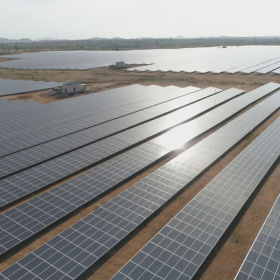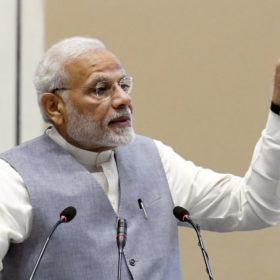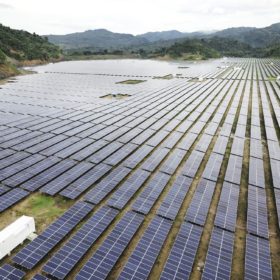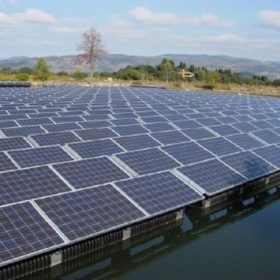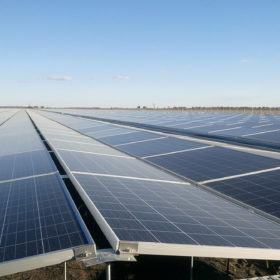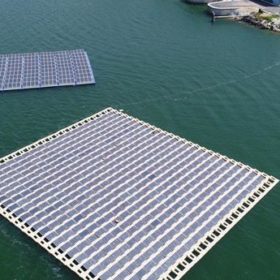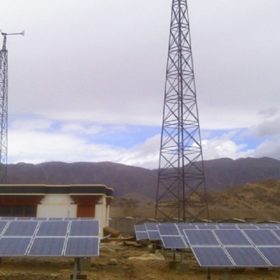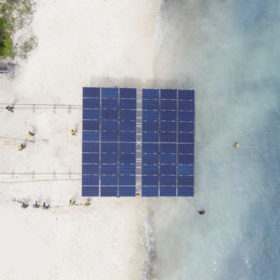Two-week bidding extension for SCCL’s 81 MW solar
Developers now have 14 more days to submit bids for 34 MW (AC) ground based, 32 MW (AC) over-burden dump based and 15 MW (AC) floating solar plants at Singareni Collieries Company Limited (SCCL) sites in Telangana state.
Modi calls for a rooftop-solar-powered city in every state
The prime minister again emphasized the need for India to develop a domestic solar manufacturing industry and also urged officials to get on with plans to make Ladakh carbon-neutral.
Another bidding extension for SCCL’s 81 MW solar projects
Developers now have one extra month to submit bids for 34 MW (AC) ground based, 32 MW (AC) over-burden dump based and 15 MW (AC) floating solar plants at Singareni Collieries Company Limited (SCCL) sites in Telangana state.
BHEL tenders BOS for NTPC’s 100 MW (AC) floating solar plant
Bids are invited for supply, installation and commissioning of balance-of-system (BOS) items for NTPC’s 100 MW (AC) grid-connected floating solar plant in Telangana. Bidding closes on April 27.
Gensol wins solar EPC projects worth Rs 45.86 crore in India
The EPC provider has won an aggregate 13.2 MWp solar capacity from State-owned Central Electronics Limited, in addition to projects from Gas Authority of India Limited, Bihar Renewable Energy Development Agency, Hindustan Petroleum Corporation Limited and Reserve Bank of India.
SCCL tenders 15 MW (AC) grid-interactive floating solar
May 4 is the deadline to submit bids for the solar capacity which shall come up at the state-owned coal miner’s Singareni Thermal Power Plant storage reservoir (10 MW) and Dorli open-cast project void (5 MW) in Telangana.
Odisha plans to develop 500 MW floating solar
The state has an overall potential of generating 17,755 MW of electricity from floating solar over 877 sq.km of water surface area in its reservoirs.
Distributed solar lender cKers Finance raises $5 million from US investor New Energy Nexus
The New Delhi based lender—which has funded over 45 MW of distributed solar energy assets—will use the new investment to catalyze the growth of residential and commercial solar systems, solar pumps, floating solar and solar cold chains in India.
Project developers in south Asia can secure cash from IRENA funding pot
The Climate Investment Platform launched by three multilateral bodies in September is now open for business and renewables companies in developing nations across 14 regions including south Asia could qualify for help with clean energy facilities, renewables-related grid improvements and energy efficiency schemes.
The long read: A seaborne alternative to burnt cash
Floating PV has matured quickly, but while the opportunity of solar on the sea may appear immense, there is nothing trivial about the challenges posed by salinity, wind, and waves. However, technical and financial solutions are appearing on the market, giving small island communities a chance to reduce their reliance on polluting diesel.
